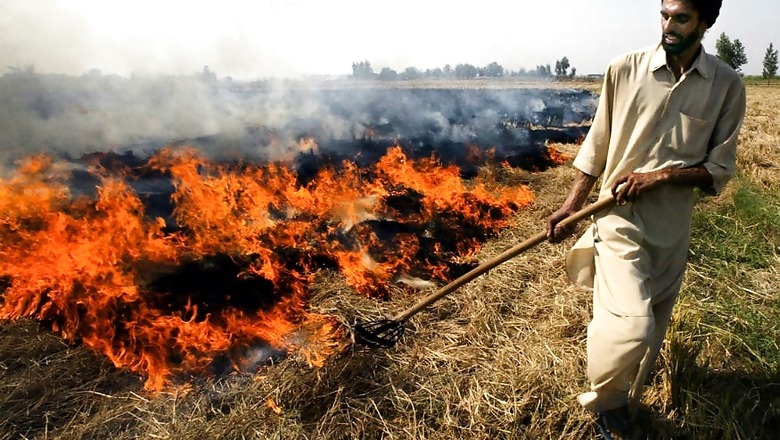
views
New Delhi: A task force constituted by Niti Aayog on biomass management has pitched for providing financial support to those farmers who have not burnt their crop residues.
The burning of agricultural residues leads to poor air quality across Northern India. A report of the task force prepared jointly by Niti Aayog and the CII has also made a case for ploughing the residue back into the field.
"Financial support can be transferred to farmers through the DBT system. It can be credited to farmer's account in the subsequent cropping season after a verification that farmer has not burnt his/her crop-residues," the report said.
To ensure proper implementation of schemes, a strong monitoring and verification mechanism is crucial, it added.
"It is recommended that a 'Clean Air Impact Fund' could be created to provide viability gap funding (VGF) for projects with longer gestation periods and lower return on investment (RoI)," the report said.
"This is especially relevant in the case of biopower or bio-ethanol where annual financial support requirements range from 18 per cent to 30 per cent of the capital expenditure," it added.
Besides, the report also recommended that seed money for the clean air impact fund is provided from the National Clean Energy Fund (NCEF).
Noting that currently the number of farm implements available to farmers are limited, the report said, "Therefore, the medium to long-term actions required to achieve zero-burning include upscaling of technologies."
Over past couple of years, there have been episodic incidents of air quality dipping to alarming levels across Delhi-NCR.
The farm burning, specific to the paddy-wheat cultivation cycle in the rural regions of northern and north-westerns states of India, has been identified as a major cause of air pollution.
Unlike other crop residues, paddy straw is utilised to a very small extent outside the field.
According to the report, India is said to have an estimated 600 million tonnes of surplus agricultural biomass which can be collected and used.
Farmers turn to residue burning on account of shortened cropping intervals given a very short window of about 10-15 days between subsequent cropping seasons.
















Comments
0 comment